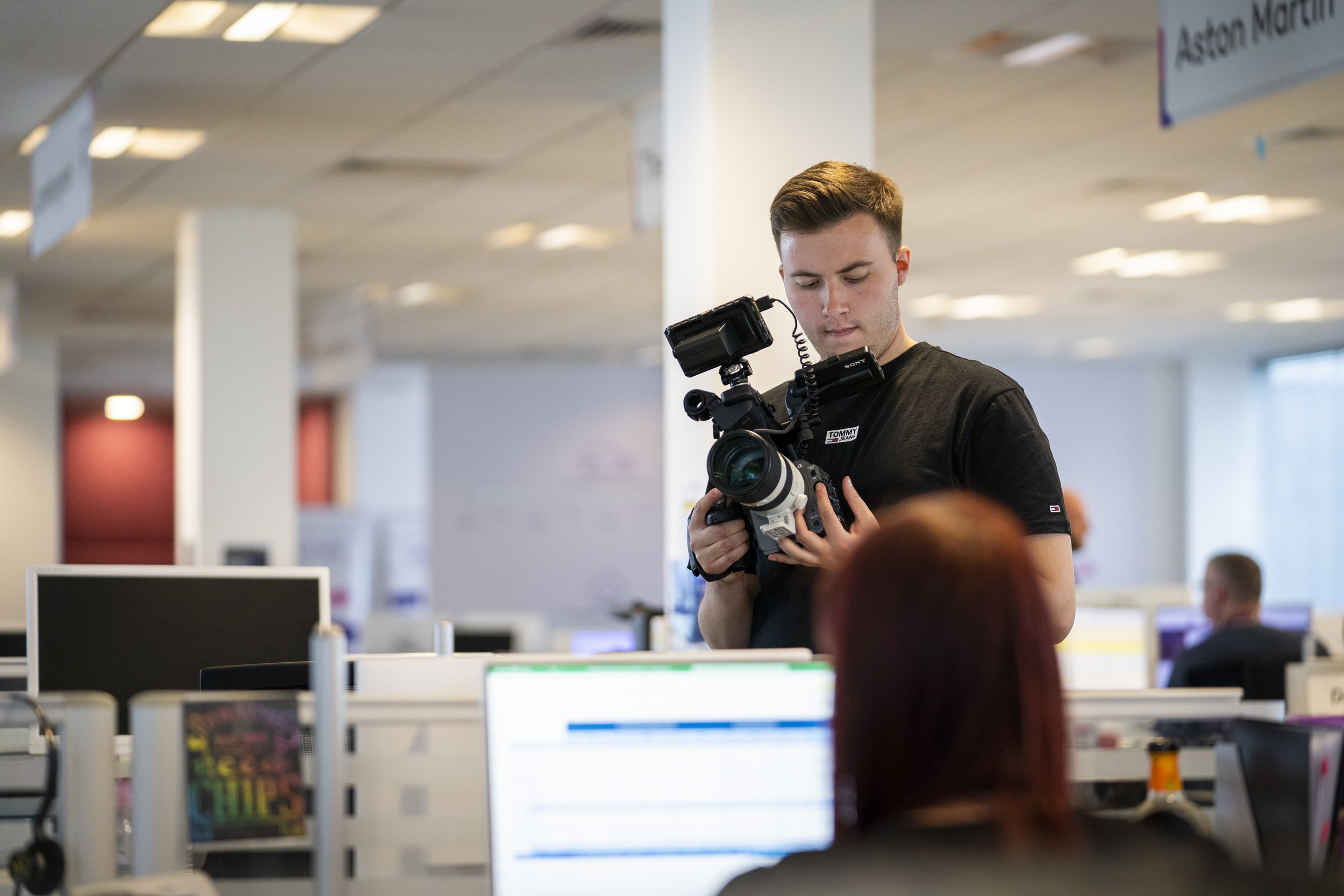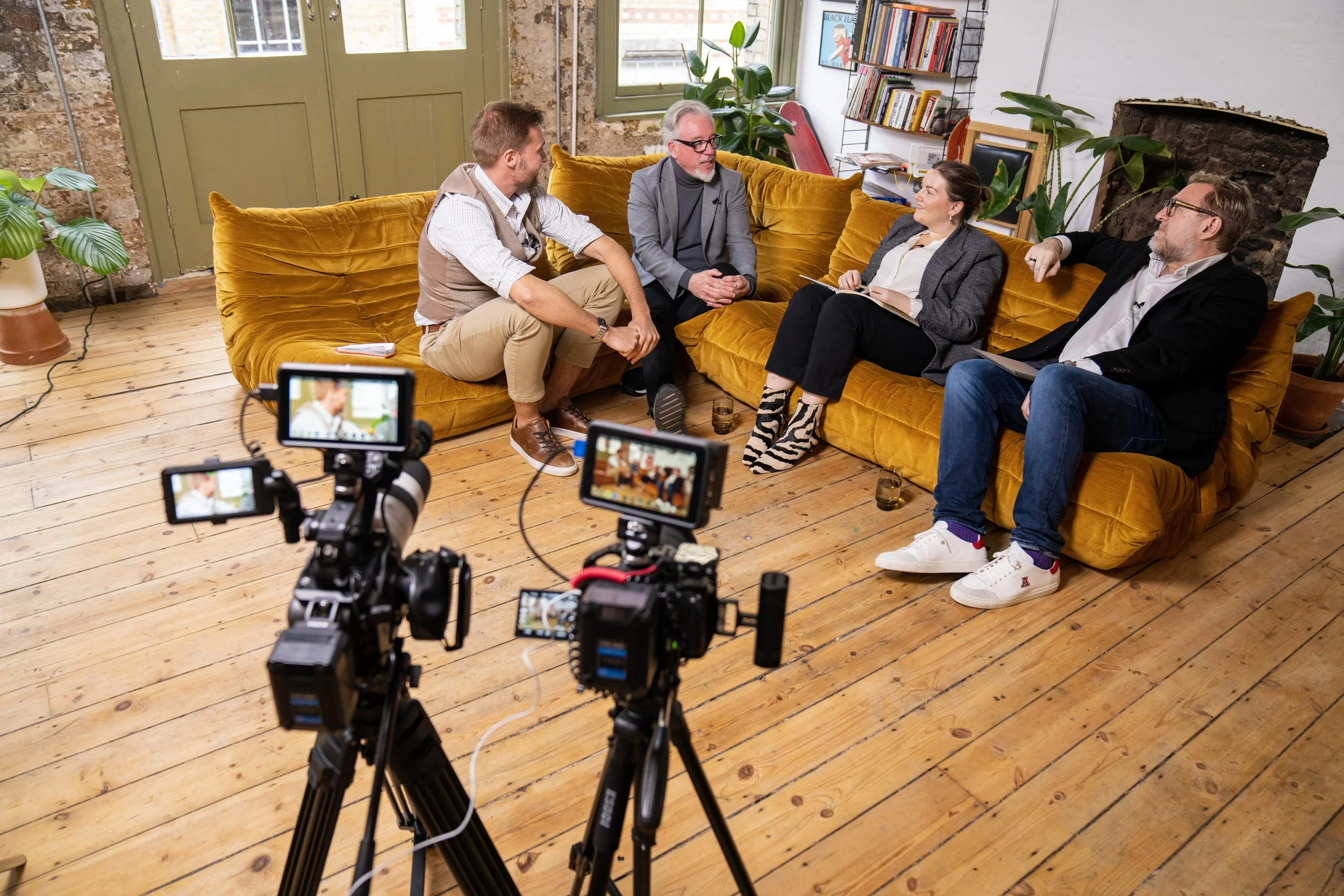Transitioning From Freelance Videographer to Video Business Owner
Throughout 2023 I’ve had the pleasure of chatting with a variety of videographers who are either looking to move away from employment and join the world of freelance, or already established freelancers who want to take the next and start working directly with clients as opposed to through an agency or production company. The common denominator being that everyone I’ve spoken to wants to start working entirely on their own terms.
If you’re coming from an employment background and want to begin freelancing, the reality is that it may be initially challenging during the early phase of your journey as it’s unlikely you’ll have a client base already established. That’s not to say it’s impossible by any means, but I wouldn’t be handing in your notice right away! Before making that jump, it’s important to lay the foundations so you feel ready to make the switch – start regularly posting on LinkedIn and Instagram, try to get some freelance work, build a website and when you feel ready to go it alone, take that leap of faith.
On the flip-side, if you’re coming from a freelance background the likelihood is that you’ll already have a network of clients and you now feel that you want to be taking on a larger scope of work.
Before starting a business though, you have to ask yourself ‘why am I making this transition?’
In my case, I was doing a lot of freelance work that wasn’t satisfying me – in other words, I was working for agencies to produce content for their clients, whereas I wanted to take ownership of projects and work directly with the client.
That said, that’s not to disrespect the likes of freelance camera operators and editors because those can be hugely fruitful careers, but the thing that really excited me was delivering work from start to finish and being able to say it was entirely of my own making.
If you just want to have a company logo and think of yourself as a ‘business’, then this isn’t a viable reason to go down this road, which leads me into the next point of what will be expected of you once you make this transition.
At first, and to keep things ticking over, you’ll probably find that your work will feel very freelance-y. You might be asked to film an event, to cover for a camera operator or to handle some editing, but as time goes on and if you keep pushing your brand then bigger jobs will come your way. With that though comes bigger expectation – that means a higher standard of work, more equipment and in some cases several crew members will be needed for shoots.
Cold clients may come to you with the impression that you are a company, as opposed to a solo business owner. That’s not to say that you should start hiring, but having a reliable network of freelancers to support you on projects with bigger budgets is definitely advantageous. In my personal case, my first flurry of cold clients were schools in the midst of the pandemic who wanted to create virtual open days – given these were large briefs I knew I was unable to facilitate the shoots independently, so on the day it was simply myself and one other videographer getting everything we needed.
You’ll also want to consider who you want to target in terms of clients – do you want to be diverse and work in various different industries, or do you want to specifically work within one industry such as events or hospitality?
Some say it’s vital to niche down and focus on one particular industry, but I’m of the opinion that you need to be diverse and work within various sectors. Ultimately if you can tell a story through film, that can be applied to absolutely any industry - I have made brand films for consultancies, hospices, car dealerships and even waste management companies to name a few. Being agile opens you up to more opportunities, a bigger network and most importantly more income.
However, having several case studies within similar industries is definitely worthwhile when pitching for future work in those sectors. For example, since starting FOSTER Studios some of the prominent industries I’ve worked within have been healthcare, hospitality, fitness and education. Having at least two case studies within the same sector can add a real sense of credibility when you’re potentially speaking to a prospect further down the line who may be coming from an industry you have experience working in.
My last tip, which I feel is very subjective, is that you may want to stop referring to yourself as a videographer when trying to be seen as a business entity.
The problem with the videographer label is that it gives prospects a pre-conceived idea that you are a one-man band and that you’re going to be a lot more affordable than what a production company would be. Now, you still want to be affordable, but you don’t want to be seen as cheap. If you are owning the project from start to finish, coming up with the idea, providing the equipment, doing the shoot, crafting the edit and facilitating any amends – then you are more than just a videographer. You are a fully-fledged service provider.
So many videographers get to a stage where they’re doing that already, but don’t consider taking it to the next level and launching a brand for a business that essentially already exists.
This is your opportunity to make that transition and really make a go of getting bigger and better work.




